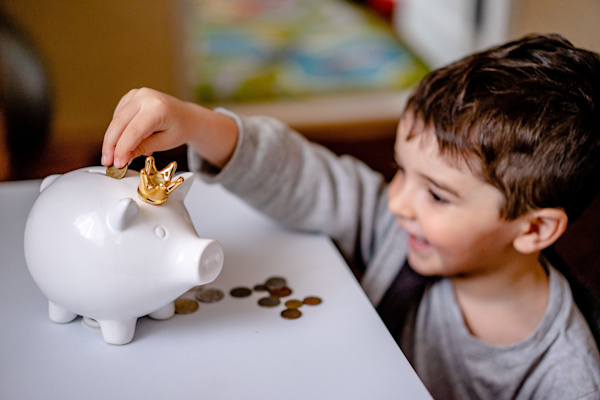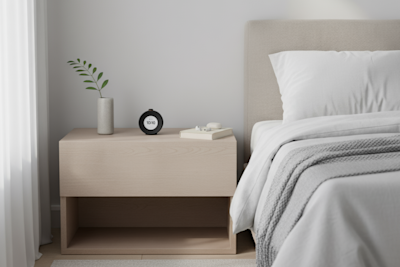
How money affects happiness
Can you buy a ‘good life?’
How much does money really affect happiness? It's a question that has been debated by philosophers, economists, and pretty much anyone else who has ever thought about the relationship between money and well-being.
A recent study published in the journal Nature Human Behaviour may have found some answers.
The researchers analyzed data from over 1.7 million people across 164 countries to see how different aspects of financial well-being are associated with life satisfaction and happiness. They looked at things like income, debt, employment status, financial security, and access to basic services like healthcare and education.
What they found was that while having more money does lead to greater life satisfaction on average, it doesn't necessarily make people happier on a day-to-day basis.
In other words: being richer makes you feel better about your life overall, however it doesn't necessarily make you feel any joy or pleasure in the moment.
What is money and what does it do?
We all know what money is, but do we really understand what it does? Money is traditionally seen as an object which holds or exchanges value, but its role goes much deeper than that. In fact, money plays a vital part in our happiness and well-being.
A recent study conducted by the University of Cambridge found that there are three key ways in which money contributes to our happiness and life satisfaction: economic security, social relationships and self-esteem.
Economic security refers to the peace of mind which comes with having reliable access to financial resources. This can include everything from income and savings to health insurance and a stable job. Social relationships are another important factor – after all, humans are social animals! Strong personal relationships provide us with love, support and a sense of belongingness which contribute significantly to our overall well-being. Finally, self-esteem also plays into how happy we feel – if we don’t feel good about ourselves then it’s very difficult to be content with life in general.
So, the next time you think of money, remember that it's more than just paper and coins; it's a tool which can potentially enhance your lifestyle when managed wisely.
How does money affect happiness?
It's no secret that money can buy ‘some’ happiness. However, how does it do so? A new study has found that there are three key ways in which money affects our happiness: by impacting our lifestyle, well-being and life satisfaction.
The first way money affects happiness is through our lifestyle. The more income we have, the better able we are to live a comfortable lifestyle surrounded by the people and things we love. This increased comfort leads to higher levels of happiness.
Secondly, money affects our well-being. It allows us to procure goods and services which enhance our health and overall wellness, leading to a happier state of mind.
Lastly, money also contributes to life satisfaction – or how content we feel with our lives as a whole. When reflecting on their lives, those with more financial resources tend to be more satisfied than those who don't have as much money at their disposal.
Balancing Money and Happiness
In today's society, the link between money and happiness is often seen as direct and inseparable. While money can indeed improve life satisfaction, it's essential to remember that numerous other factors contribute to overall happiness and well-being. It's crucial to maintain a balanced perspective and consider all aspects of life when striving for happiness.
The Two Sides of Money
Indeed, money can make life much smoother, providing material possessions, experiences, and opportunities which might otherwise be out of reach. However, while money can help create happiness to some extent, it also carries potential drawbacks.
For instance, studies have shown that individuals with substantial wealth are often less content than those with moderate incomes. Moreover, those who overly focus on acquiring material wealth tend to be less satisfied with their lives in general.
The Role of Lifestyle in Happiness
The lifestyle we choose significantly impacts our overall satisfaction and contentment. Those leading simpler lives often report higher happiness levels than those persistently chasing luxury and possessions. Finding a balance that provides sufficient comfort without jeopardizing well-being or peace of mind is key.
Finding Happiness Beyond Money
Although money plays a significant role in our lives and impacts numerous aspects, research suggests that an increase in income doesn't directly translate to elevated happiness. Instead, gaining financial stability when struggling can significantly enhance well-being. Thus, it is important to remember that there are numerous ways to find happiness, and it often comes from within. Your attitudes and mindset play a major role in determining how happy you feel.
Final Thoughts: Navigating the Intersection of Money and Happiness
We can say that money cannot buy happiness, however, money undeniably influences our happiness and lifestyle. Individuals with more access to funds tend to report higher levels of happiness and life satisfaction. Money can facilitate experiences and purchases which bring joy, such as holidays, home enhancements, and personal treats.
However, there's a limit to the well-being money can bring. After individuals reach an annual income of around $75,000, their happiness tends to plateau, irrespective of further increases in wealth. And while material possessions may provide temporary happiness, the novelty usually fades, returning us to our default happiness levels.
Related stories

What is Blue Monday & How to Deal with Seasonal Blues
Feeling the winter blues? Discover how to overcome seasonal sadness with mindfulness, better sleep, limited screen time, and meaningful connections.

The Best Nighttime Routine to Pair with a Gentle Wake-Up Alarm
Improve your sleep quality with a soothing nighttime routine. Pair healthy habits with Mudita Harmony & Mudita Bell for gentle, mindful wake-ups.

How Smartphone Photography is Changing Your Memory
Is smartphone photography helping you remember or making you forget? Learn how taking too many pix affects memory & how mindful photography keeps you present.
If you'd like to receive the best stories from our blog, keep up to date with our progress and get notified about our product releases and special discounts.